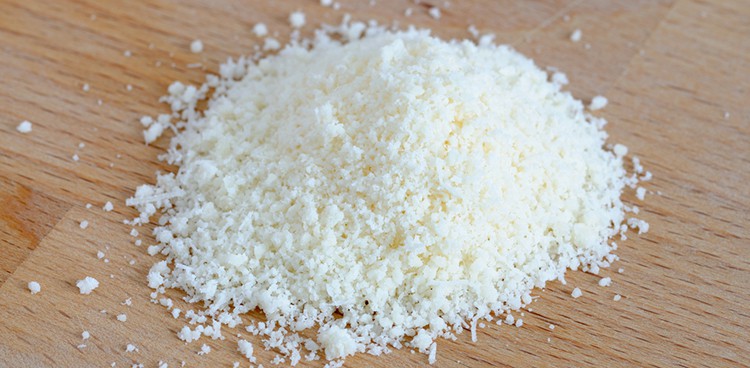
It’s natural to expect food to be what it says it is—in fact, it would be unnatural to expect otherwise. Yet, recent cases have shown how natural it is for certain companies to go ahead and make less than pure products. Most important to us cheese-loving folks, Bloomberg News has revealed that several cheese manufactures have been faking their supposedly “100%” parmesan cheese products. With wood. (Cellulose, to be exact.)
The last time we checked in with Castle Cheese Inc., the (now bankrupt) company was facing fines of up to $500,000, and Michelle Myrter—president of Castle Cheese at the time—was on probation for selling mislabeled cheese and cheese that didn’t contain any milk (which, hurrah, the FDA does not consider to be cheese). The story got way bigger, of course, once the news broke that the FDA found that the cheap filler substitute of choice happened to be cellulose, a food-safe anti-clumping agent that is manufactured from wood pulp.
Cue media explosion, and now Myrter is looking at a year in prison and a $100,000 fine after pleading guilty for misleading the public and mislabeling the purity of Castle’s products.
As heart-wrenching as this case is, the spread of imitation cheeses is much wider than you might think. From Target to Kraft, many distributers are guilty of putting a little more filler than milk into the making of their cheese. This is almost entirely to save a little money by substituting cheap stuff for the real cheddar. It’s a practice largely found in smaller restaurants, which are hounded by companies hawking filler parmesan for prices around 30% below the prices set by real people selling real cheese.
Cellulose isn’t solely a cheese filler, either. Almost everything from ice cream to diet foods uses this tasteless filler to add a little shape or texture to the foods. It might not really change the meal, but when paying for a product it always feels better for it to be sure it is 100% that product.
It’s hard not to stand on any other side of this issue: The cheese you grate should always be the great cheese you deserve, and that goes for any other food product, too.
Feature Photo Credit: Grated Parmesan Cheese on Table” by Philip Lange | Shutterstock



